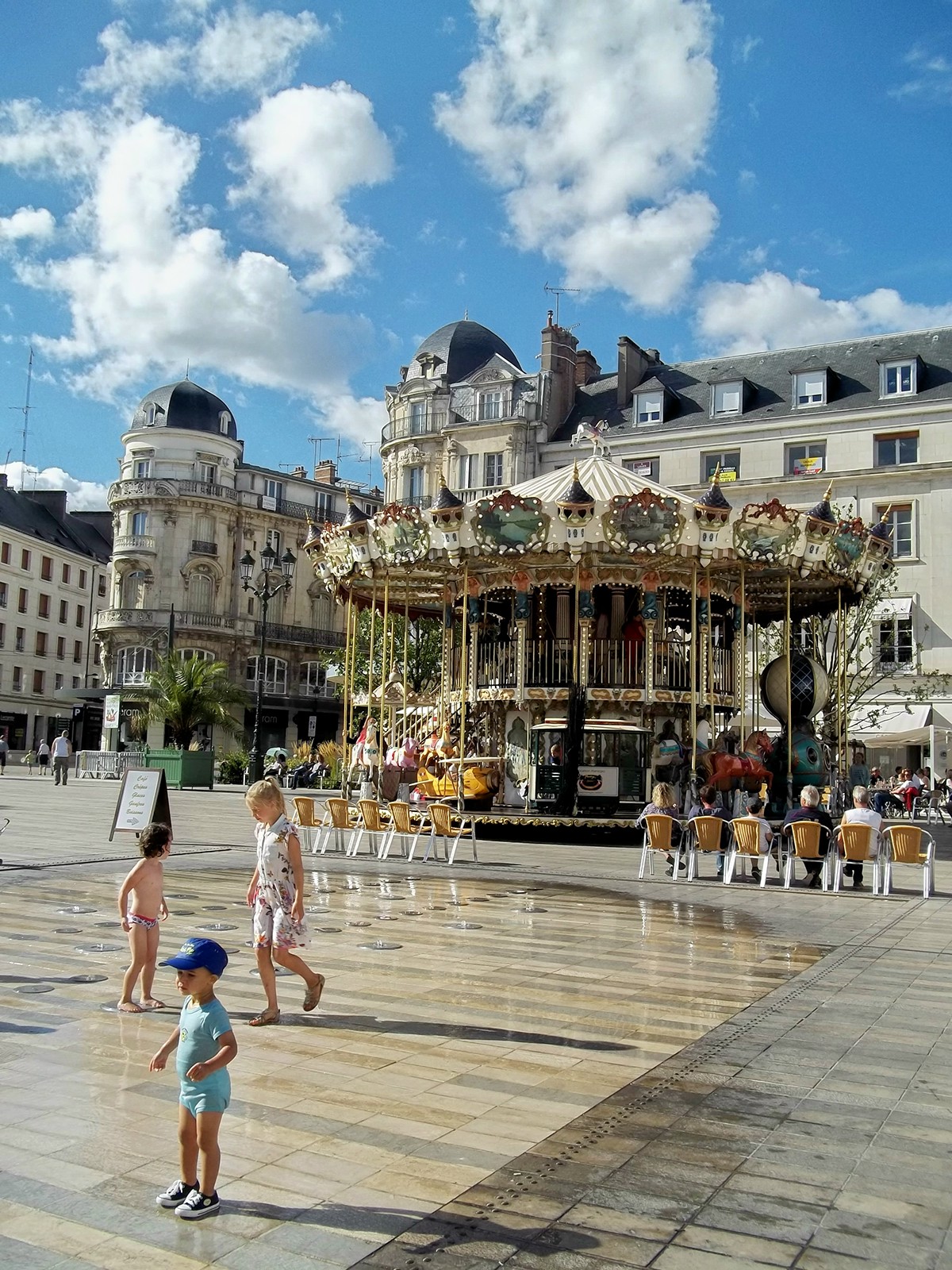




The city of Orléans counts 114 375 inhabitants and belongs to the urban area of Orléans Val de Loire grouping 22 municipalities for a total about 273 000 inhabitants and to the Urban area of Orléans grouping 90 municipalities for a total about 417 000 inhabitants (the 21th of France). It is the closest Regional Prefecture to Paris.
Orléans is classified as " City of art and history", and is near the natural region of Sologne, near the plains of Beauce, in the middle of the Val de la Loire classified as the World heritage of the humanity (UNESCO), as well as near the forest of Orléans. Its inhabitants are called the Orléannais.
Orléans is classified as " City of art and history", and is near the natural region of Sologne, near the plains of Beauce, in the middle of the Val de la Loire classified as the World heritage of the humanity (UNESCO), as well as near the forest of Orléans. Its inhabitants are called the Orléannais.
King Louis XI widely contributed to the prosperity of the city. He revitalized the agriculture of the area called "Orléanais". The exceptional fertility of lands of Beauce favored the cultures. He boosted the culture of the saffron in Pithiviers. In the XVth and XVIth centuries, the city is one of the most beautiful of France. Churches and mansions multiply there.
The religious wars disturbed strongly this prosperity. The city sheltered numerous Protestants, at first Germanic students, then converted inhabitants of Orléans. Jean Calvin is hosted and accommodated at the University of Orléans. He meets Lutheran and writes a part of his reformist theses there. To thank for this protection, King of England Henry VIII, inspired by the thoughts of the reformer for the Anglican religion, offered a grant to the university.
Orléans is also the city of Joan of Arc. During the Hundred Years' War, this young woman played a very important role for Orléans in delivering the city of the English troops in 1428.
From December 13th, 1560 till January 31st, 1561, the General States (Etats-Généraux) took place in the city. It was at that time that died King François II, the elder son of Catherine de Medici and Henri II, on December 5th, 1560 in the Hotel Groslot d'Orléans, with by his side his wife, Marie Stuart.
Jean-Baptiste Poquelin, more known under Molière's pen name, came too to study the law in Orléans, but he participated in the carnival nevertheless forbidden by the not laic rules of the university and was for this dismissed by the university.
When France colonized America, it conquered a territory in the valley of the Mississippi River, named River Colbert, from the river mouth up to its spring on the borders of Canada. It is called Louisiana and the capital is called New Orleans in honor of the Regent of Louis XV, the duke of Orléans. It is populated with 8 000 French people and Cadiens chased away by the northeast by the British troops.
In front of Quebec, there is the island of Orléans so called in honor of the duke of Orléans.
In front of Quebec, there is the island of Orléans so called in honor of the duke of Orléans.
Since 1976, Oléans is twinned with the city of Wichita in the State of Kansas (USA).
Since March 14, 1992 Orléans is twinned with Cracow in Poland (in the voivoship of Small-Poland).
Orléans is "a cousin" of New Orleans, Lousiana. On September 2nd, 2005, Orléans announces that it is going to help after the passage of the hurricane Katrina. Orléans also brought a financial support in the direction of the victims of Louisiana.
Orléans's devise: "Hoc vernant lilia cords" given by Louis XII, then Duke of Orléans: "it is by this heart that lilies bloom".
